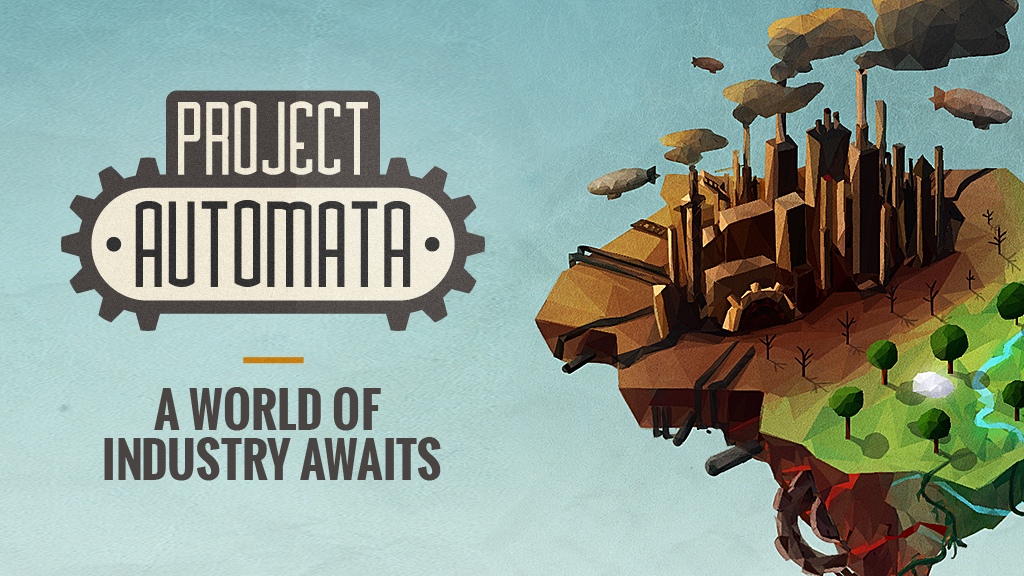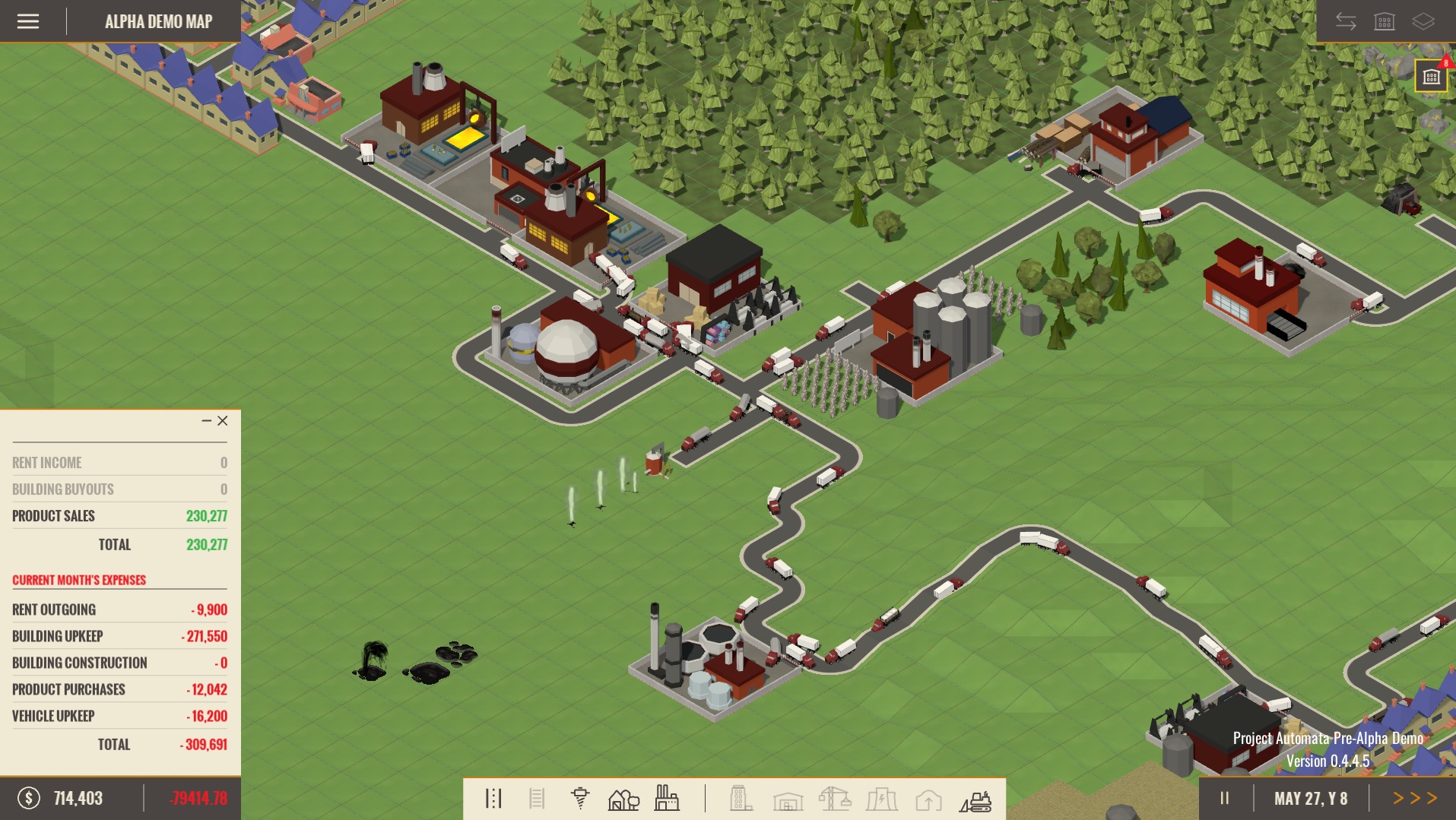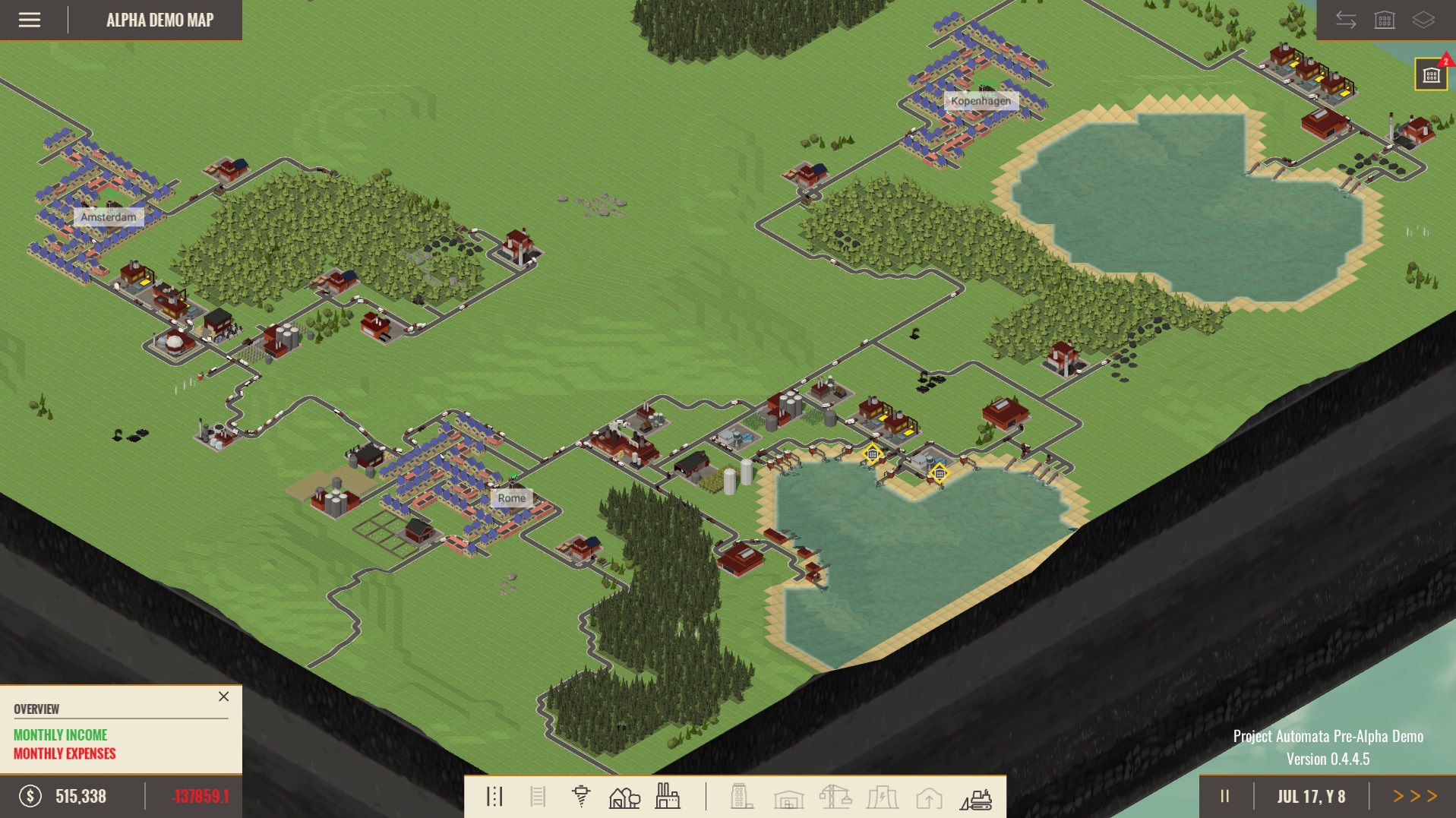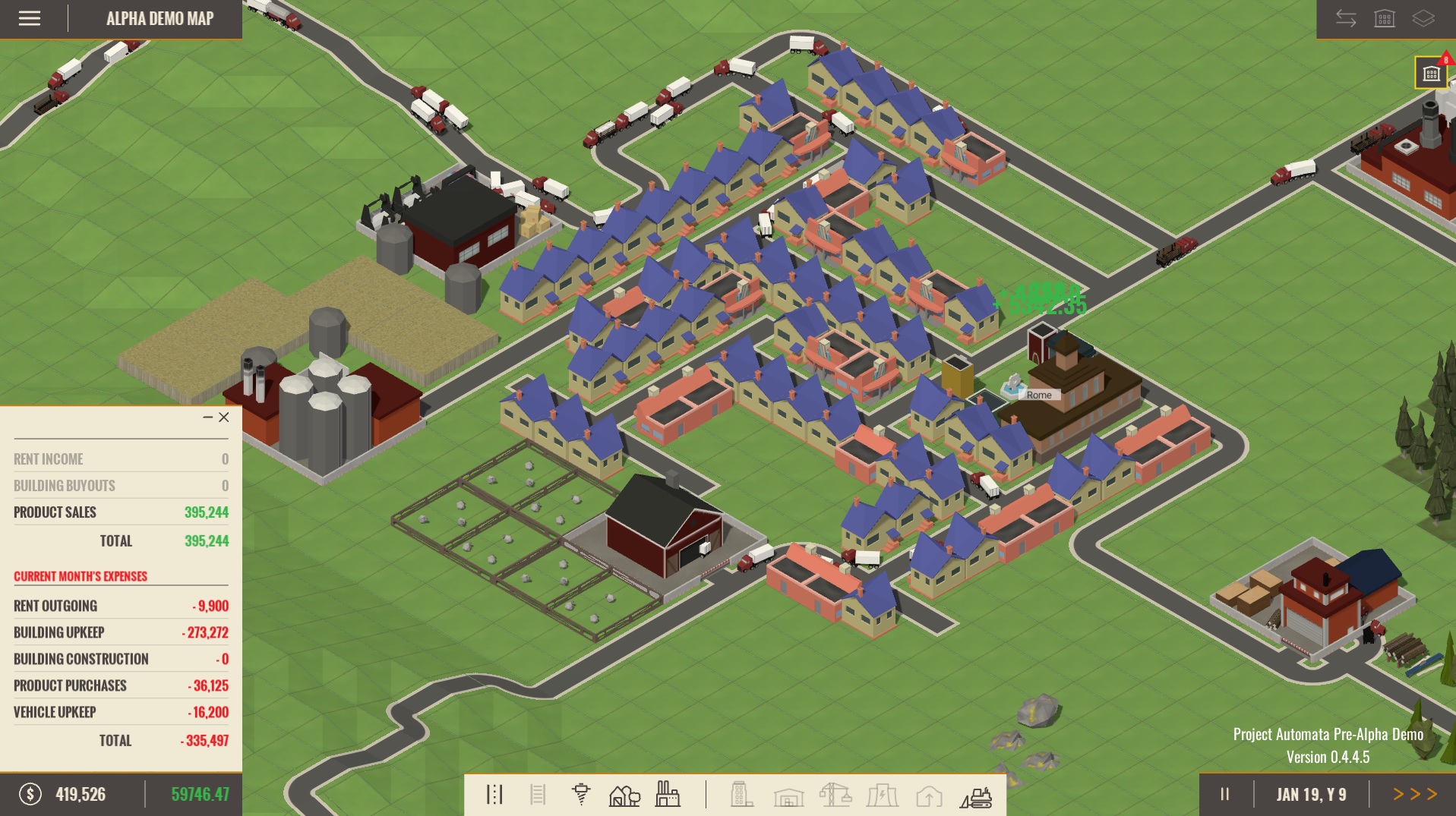When it comes to management games, I usually prefer ones which involve overseeing operations in smaller capacities. This might be because I’ve grown up playing city builders like Zeus: Master of Olympus and Caesar III, where I had to take care of citizens while constructing streets, canals and bustling neighborhoods filled with granaries and cathedrals. All of that felt personal, bringing a charming dose of life and meaning into the process of building infrastructure.
In contrast, Project Automata is a pretty lifeless game. I guess that’s implied by the name, though, so I wasn’t surprised to find that out once I spent a few hours with its alpha build.
The light of progress to the masses.
At first glance, Project Automata offers a rather simplified and easy to get into simulation experience. A short (and pretty archaically-designed) tutorial immediately told me that my main job would be to babysit cities by delivering them specific goods. With the map consisting of several key resources, I quickly began to gather those by constructing harvesting facilities, connecting those with roads and eventually routing their production to various types of factories.
For example, let’s say that New York demands office furniture. In order to satisfy the city’s corporate needs, you’d need to collect wood and produce steel. Getting wood is pretty straight-forward – just build a lumberyard next to a forest. On the other hand, acquiring steel is a bit trickier. First, you’d need to construct a mine to harvest iron. Then, you’d have to build a smelter in order to turn steel into iron. Doing so requires coal, so you should also position a mine next to that resource.
Now that everything is operational, you can finally have a furniture factory spitting out fancy office stools and hip-looking sofas. Slowly but surely, and through constant repetition, the game turns into a well-oiled machine waiting to be operated at full capacity. Doing so was certainly fun for the first hour or two, as I blissfully positioned chicken fields next to water sources and food factories. For a moment I even found myself in a weird, industrial zen-like state.
The machine breaks
However, things quickly got boring once I realized there wasn’t anything else to do. Even though I managed to satisfy all the city’s needs during my second play session, the actions I had to perform remained mundane and tedious. In case you’re wondering, running out of money also doesn’t change anything. With such a disturbing lack of penalties and end-game goals, Project Automata‘s current state doesn’t exactly offer any exciting dilemmas.
All of this shouldn’t come as a surprise, though. Being in an early alpha state, the game has many features which remain to be implemented. For instance, the Kickstarter boasts with advanced AI which “will break new ground in advanced industrial simulation”. While I doubt it’ll be truly revolutionary, I’m looking forward to cities changing their needs depending on supply and demand. Multiplayer support is also planned, although I fail to see the fun in that.
In the end, I can’t say if Project Automata has the potential to become something special. While its current state does offers a solid industrial management experience, it also seems a bit uninspired and lacking in charm. Seemingly stuck between being an in-depth industrial simulator and an almost-casual city management game, Project Automata needs to find itself before moving forward.






